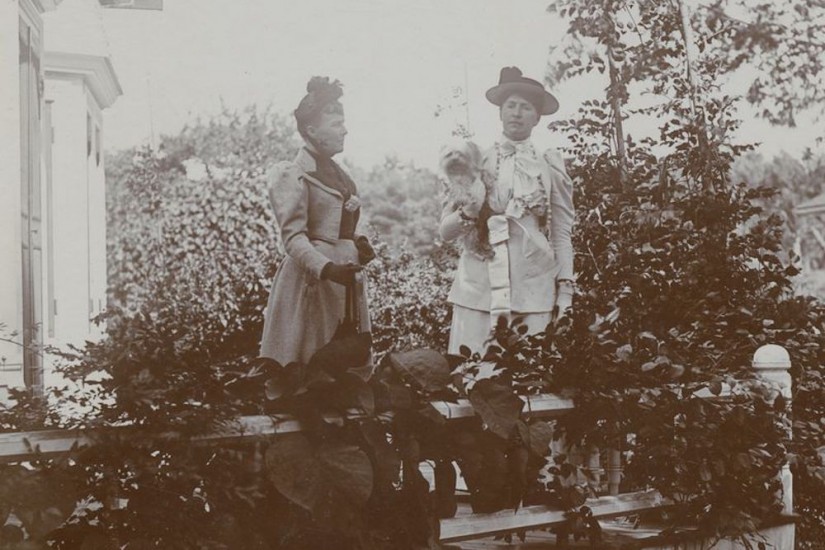In the summer of 1910, Evangeline Simpson Whipple told the caretaker of her home not to move anything in her absence. The wealthy widow was going on a trip, but would be back soon, she said.
She never returned. When she died in 1930, she was buried at her request in Italy next to the love of her life — a woman with whom she had a relationship that spanned nearly 30 years. That woman, Rose Cleveland, had served as first lady. The letters, preserved by the caretaker at Evangeline’s Minnesota home, are collected in a new book, “Precious and Adored: The Love Letters of Rose Cleveland and Evangeline Simpson Whipple,” and make clear that they were more than just friends, according to its editors.
When Grover Cleveland took office in 1885, he was a 50-year-old bachelor, a fact that almost derailed his campaign when rumors spread that he had fathered a child out of wedlock. (He had.) Protocol for unmarried or widowed presidents called for a female relative to fill the role of first lady. In stepped his sister Rose.
She was seen as an important counterbalance to her brother’s scandalous baggage: She was respectable, well-educated, a former teacher at a women’s seminary and the author of serious books.
Her term as first lady, however, was a mixed bag, according to the National First Ladies’ Library. Her book of essays, “George Eliot’s Poetry,” became a bestseller based on her fame, but she was frustrated with public scrutiny of her necklines and a ban on her going to private dinners or public markets.
Fourteen months in, Rose was relieved of her duties when the president married his 21-year-old ward, Frances Folsom. Rose returned to her family estate, nicknamed “The Weeds,” in Upstate New York.
Rose met Evangeline Simpson in the winter of 1889-1890, less than a year after her brother left office for the first time. (Cleveland is the only two-term president not to have served his terms consecutively.) They probably met in Florida, where both spent the season making the rounds among the nation’s wealthier families. Rose was 43 and never married. Evangeline was probably 33 and had inherited a fortune from a late husband nearly five decades her senior.
The love letters begin in April 1890, once the two returned to their respective homes. (Evangeline lived in Massachusetts.)
Rose writes:
“My Eve! Ah, how I love you! It paralyzes me ... Oh Eve, Eve, surely you cannot realize what you are to me. What you must be. Yes, I dare it, now, I will not longer fear to claim you. You are mine by every sign in Earth & Heaven, by every sign in soul & spirit & body — and you cannot escape me. You must bear me all the way, Eve ...”
Then, in May:
“You are mine, and I am yours, and we are one, and our lives are one henceforth, please God, who can alone separate us. I am bold to say this, to pray & to live to it. Am I too bold, Eve — tell me? ... I shall go to bed, Eve — with your letters under my pillow.”
Because only Rose’s letters survive, we know little of how Evangeline responded. But, on a few occasions, Rose quotes Evangeline’s letters in her own: “Oh darling, come to me this night — my Clevy, my Viking, My — Everything, Come! God Bless Thee.” Rose flirtatiously replied, “Your Viking kisses you!”
Rose struggled to name their relationship — “I cannot find the words to talk about it,” “the right word will not be spoken.” Indeed, there was not a word for a same-sex relationship between women at the time. The word “lesbian” existed, but only in reference to the Greek poet Sappho.
